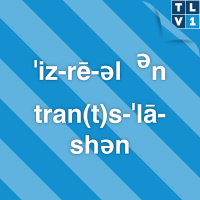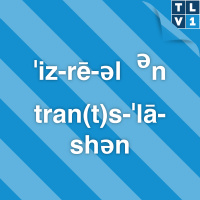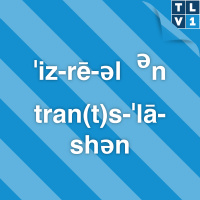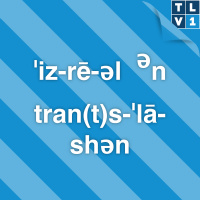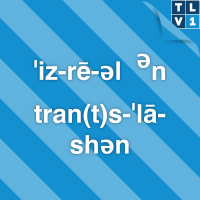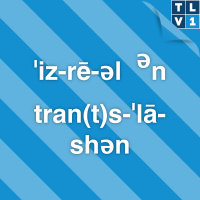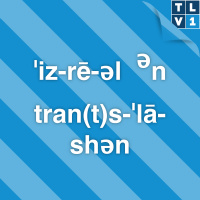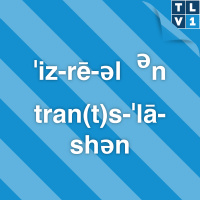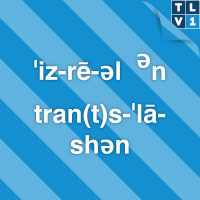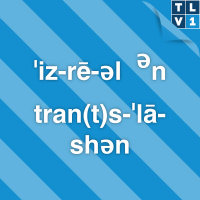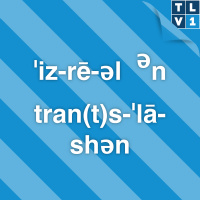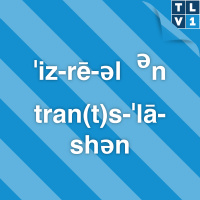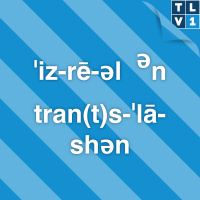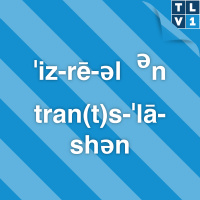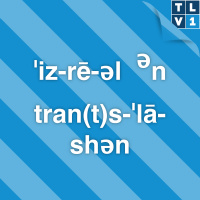Israel In Translation
- Autor: Vários
- Narrador: Vários
- Editora: Podcast
- Duração: 44:23:12
- Mais informações
Informações:
Sinopse
Exploring Israeli literature in English translation. Host Marcela Sulak takes you through Israels literary countryside, cityscapes, and psychological terrain, and the lives of the people who create it.
Episódios
-
An inexpugnable first impression
18/02/2015 Duração: 08minEtgar Keret and Assaf Gavron have edited a collection of short stories, Tel Aviv Noir, that highlights the hidden, sometimes shameful, always mysterious aspects of the city. Host Marcela Sulak reads from one of her favorites, 'Women,' written by Matan Hermoni and translated by Yardenne Greenspan. The narrator comes across a mysterious figure at the funeral of poet Abraham Sutzkever, taking place at the Kyriat Shaul Cemetery in Tel Aviv on a cold, sad, and rainy January day, full of "raincoats and umbrellas and top hats and tears and scarves and boots and overshoes." How will he later come to know this man with the "sparkle in his eyes"? We hear music chosen by Hermoni throughout the show. Text: Tel Aviv Noir, Ed. Etgar Keret and Assaf Gavron. Trans. Yardenne Greenspan. Akashic Books, 2014. Music: Arik Lavie - Ze KoreHadudaim - Marsh Hadayagim
-
A Tel Aviv beach in winter
11/02/2015 Duração: 07minYou’ve still got time to visit a Tel Aviv beach this winter. To get you in the mood, host Marcela Sulak reads Rachel Chalifi's poem 'Tel Aviv Beach Winter '74,' translated by Alexandra Meiri. Here's an excerpt: The sun is a faded photo.Shore birds peck greyly at the sand.The muscles of the sea groan.A solitary woman in a nylonscarf. What is she,against a thunderstorm? Chalfi was born in Tel Aviv, the daughter of two poets. She studied in Jerusalem, then Berkeley, and finally Los Angeles, before returning to Tel Aviv where she married a writer - ending as she began. To date, Chalfi has published 15 books of poetry and a collection of short stories. She has won the Prime Minister's Prize, the Bialik Prize, and the prestigious Brenner prize, amongst others. Marcela ends by reading 'A Witch Practically,' in which Chalifi explains why being a "witch" is a little more mundane than you might think. Text: Kaleidoscope: Three Poets from Israel. Mosaic Press, 2014. Music: 'Stairs of the Unknown.' Composed by Eita
-
Songs of Sderot
04/02/2015 Duração: 10minShimon Adaf's poem 'Sderot' begins: It took me twenty years to lovethis hole in the middle of nowhere.The cotton buds dispersed in a white flameand the wind meddled in the cypresses... Born in Sderot, the 'bomb shelter capital of the world,' to parents of Moroccan origin, Shimon Adaf has written five novels and three collections of poetry, which have received numerous national prizes. He lectures on Hebrew literature at Ben-Gurion University of the Negev, and is head of the Hebrew-language creative writing program there. Host Marcela Sulak reads from Adaf's 'Ars Poetica,' which deals with his Moroccan origins, and 'Evening Prayer,' which is rooted in the memory of his religious upbringing. Adaf also sings, writes songs, and plays music with the band Ha’Atzulah - we hear some of his work during the podcast. Text: Kaleidoscope: Three Poets from Israel. Mosaic Press, 2014. Music: Ars Poetica - lyrics by Shimon Adaf, music by Shimon Adaf, David Gross, and Shimon Tal.Evening Prayer- lyrics by Shimon Adaf, mu
-
Standing in line for bread
28/01/2015 Duração: 08minHost Marcela Sulak takes us on an unusual trip to the bakery with Sharron Hass' short story The Thief, translated by Amalia Ziv. On encountering a mysterious woman in red stealing a box of cookies from a bakery, the protagonist sees her own situation reflected in the thief's predicament: "The risks you take. The poverty of truth. And the panic, the terrible panic that we shall never receive as much as we give." Tel Aviv poet, Sharron Hass, is known mostly for her poetry; among her three collections are the cult classic, The Mountain Mother is Gone, The Stranger and the Everyday Woman, and Subjects of the Sun. The critic Rami Saari locates her work on the border between reality, legend, and dream. Texts: The Defiant Muse: Hebrew feminist Poems from Antiquity to the Present. Eds. Shirley Kaufman, Galit Hasan-Rokem, and Tamar S.Hess. The Feminist Press, 1999. Poets on the Edge: An Anthology of Contemporary Hebrew Poetry. Ed. and translated by Tzippi Keller. SUNY series in Modern Jewish Literature and Culture,
-
On earth as it is in Tel Aviv
21/01/2015 Duração: 08minHost Marcela Sulak reads Aharon Shabtai's poem 'Our Land' (translated by Peter Cole), which features a kind of 'afterlife' Tel Aviv: ... Soon we will all / meet in the Tel Aviv below—Weinstein the milkman, / and Haim the iceman,Solganik / and the staff at the dry-goods co-op:Hannah and Frieda and Tzitron; / and the one-armed manfrom the clothing store / at the cornernear Café Ditze... Aharon Shabtai was born in 1939 in Tel Aviv and spent his childhood on Kibbutz Merhavia. He’s the brother of Yaakov Shabtai, author of Past Continuous. His poetry’s incredibly intimate references to his personal life have made Shabtai a controversial figure among contemporary Israeli poets and critics. He’s also an outspoken critic of Israeli policies in the Palestinian territories, and of human rights violations. Here's the ending of 'Nostalgia' (translated by Peter Cole): And when it’s all over,my dear, dear reader,on which benches will we have to sit,those of us who shouted “Death to the Arabs!”and those who claimed they “
-
"Blessed be He who made me woman"
14/01/2015 Duração: 06minBlessed be He who made me woman created of nothing! Blessed be He who hasn't made me man who never dies and is not born. So began the mornings of Shin Shifra, born in Bnei Brak in 1931, who turns the traditional Jewish Orthodox morning prayer up-side-down. Shin Shifra’s poetry is steeped in Orthodox religious practice, befitting her home life and background. But it portrays a feminine and feminist focus, as in the poem 'Sabbath Prayer,' translated by Tsipi Keller and read by host Marcela Sulak: "Let there be in the house a troop of toddlers... Let them bring in mud / from the garden and I will yell at them / let them quarrel and call each other names / and they will give me strength / like the angels of the recitation of Shema / and my forefathers will be named in them." Text: Poets on the Edge. An Anthology of Contemporary Hebrew Poetry. Selected and translated by Tsipi Keller. SUNY Press (2008). Music: Hagar Kadima - 'Stop' (2011), lyrics by Shin Shifra, performed by Etty BenZaken. Gil Shohat - 'So
-
The cloudy skies of Tuvya Ruebner
07/01/2015 Duração: 08minWinter is the rainy season in sunny Israel, and in general we welcome the rare, rain-filled clouds. Tuvya Ruebner's poems are full of clouds in Rachel Tzvia Back's wonderful new translation of his selected poems, In the Illuminated Dark. After losing his entire family to Auschwitz-Berkenau, Ruebner made it to Mandate Palestine. He married Ada Klein from his native Slovakia and had a daughter with her in 1949. A few months later Ada was killed in a bus accident that seriously injured Tuvya and forced him into clerical work on the kibbutz where he lived with his daughter. He later married pianist Galila Jizreeli, and the language of his daily life changed from German to Hebrew. They had two sons but in 1983 the younger disappeared in South America. Ruebner's poetry articulates this cycle of loss and regeneration. Host Marcela Sulak reads from his heartrending poem 'The Memory' - the memory of a young boy's family "vanishing in the mist" on a train - and from the poem 'My Little Sister,' in which "The blackbird
-
Seeing out 2014 with Dahlia Ravikovitch's 'Dress of Fire'
31/12/2014 Duração: 08minTonight we’ll end 2014 with a blast of fire; we hear Dahlia Ravikovitch's own recitation of her poem 'Dress of Fire,' which host Marcela Sulak translates for us (using Chana and Ariel Bloch's translation). We also listen to some of Ravikovitch's poems set to music. Born in the Ramat Gan suburb of Tel Aviv in 1936, Ravikovitch wrote fiction, children’s books, and 12 collections of poetry, which have been awarded many literary prizes. After the 1982 Lebanese War, she began writing protest poetry. Two of her most powerful are 'Hovering at a Low Altitude,' and 'You Can’t Kill a Baby Twice.' She was active in the Israeli peace movement until she died in 2005 of sudden heart irregularities. Texts: The Vintage Book of Contemporary World Poetry, edited by J. D. McClatchy (1996). Hovering at a Low Altitude: The Collected Poetry of Dahlia Ravikovitch, translated by Chana Bloch & Chana Kronfeld. W.W. Norton & Co. (2009). Music: 'Tmuna' [picture] by Dahlia Ravikovitch, performed by Yehudith Ravitz 'Lebeitech sh
-
Where Jesus walked, told through 'Arabesques'
23/12/2014 Duração: 08minAs Christians all over the world celebrate Christmas Eve tonight, we travel to the Galilee through the eyes of the novelist Anton Shammas, a native of this region of Israel. In honor of Nazareth, the childhood home of Jesus, host Marcela Sulak reads three excerpts from Shammas' novel Arabesques, which has been called, “a history of its author’s youth and the memoir of a family and a fabled region - Galilee.” One of the most striking features of the novel is how the life of Jesus and the miracles of Nazareth are woven into the fabric of daily life. The New York Times named Arabesques one of the seven best works of fiction in 1988. All this against the backdrop of Christmas songs sung by Fairuz, one of the most respected and admired Lebanese singers alive. Texts: Arabesques, by Anton Shammas. Translated by Vivien Eden. New York: Harper & Row, 1988. Music: I Believe - lyrics by Ervin Drake, Irvin Graham, Jimmy Shirl and Al Stillman in 1953. Sung by Fairuz. Talj Talja [Snow, Snow] - Fairuz Silent Night -
-
On Hanukkah, kindle a small pillar of fire
17/12/2014 Duração: 07minLast night in Israel we celebrated the first night of Hanukkah: The festival of lights, or the festival of the dedication of the temple. From dreidels to doughnuts, host Marcela Sulak takes us through the holiday's customs and traditions, and then lets historian Titus Flavius Josephus, born Yosef ben Matityahu, tell the story in his own words. In Hanukkah's spirit of 'light,' Marcela reads a poem by Admiel Kosman, 'A Small Pillar of Fire,' translated specifically for this podcast by Lisa Katz. Texts: Antiquities of the Jews by Flavius Josephus. Loeb Classical Library (Harvard Press). “Pillar of Fire” by Admiel Kosman, translated by Lisa Katz. From הגענו לאלוהים, Kibbutz Hameuchad, 1998. Traditional Hanukkah songs used in the show: Sevivon, Sov, Sov, SovKad KatanHaNerot HalaluBanu Khoshech Legaresh
-
Yona Wallach's Hebrew "peeks through the keyhole"
10/12/2014 Duração: 08minYona Wallach was born in 1944 in Tel Aviv and never travelled outside Israel's borders. Eleven collections of her poetry have been published during her lifetime and posthumously, and many of her songs have been put to music. She also wrote for and joined a rock band. Though she died in 1985 of breast cancer at the age of 41, she is still very much present in Tel Aviv. Never one to shy away from controversy, her provocative (some would say pornographic) poem 'Tefillin' created a public storm and ruined her close friendship with fellow poet Zelda. Wallach certainly made an astonishing impact on Hebrew literature during her short life, ushering in a feminist revolution in Israeli poetry and revolutionizing literary Hebrew to include the sounds of the twentieth century. In her poem 'Hebrew,' from which host Marcela Sulak reads, she calls the Hebrew language a "sex maniac" because all nouns have a gender: "She wants to know who’s speaking / almost a vision almost an image / what’s forbidden in the whole Torah / or
-
Ronny Someck, a poet of Tel Aviv
03/12/2014 Duração: 06minHost Marcela Sulak traces the life of poet Ronny Someck, from his origins in Baghdad to Israeli transit camps to Tel Aviv, through his poetry. Life in the transit camps in the 1950s was difficult, as described in the poem 'Poverty Line,' in which Someck says, "The only line I saw was the horizon and under it everything / looked poor." He went on to study Hebrew Literature and Philosophy at Tel Aviv University. At 63 he now lives in Ramat Gan, and has been called "a poet of Tel Aviv" for poems like 'Seven Lines on the Miraculous Yarkon,' from which Marcela reads today. Someck’s poetry has been translated into 41 languages, and it’s won the Prime Minister’s Award and the Yehuda Amichai Award. He’s recorded three CDs with the musician Elliot Sharp, and has published two children’s books with his daughter, Shirley. Text: Keys to the Garden: New Israeli Writing. Edited by Ammiel Alcalay. San Fransico: City Lights Press, 1996. Further reading: The Fire Stays in Red: Poems by Ronny Someck, translated by Moshe Dor
-
Sayed Kashua: An examination of Arab-Israeli identity
26/11/2014 Duração: 07minSayed Kashua is perhaps most known for the wildly popular satirical television series he created, Arab Labor ( a phrase that in Hebrew - avoda aravit - usually implies 'shoddy or second-rate work'). The show holds a mirror up to the racism and ignorance on both sides of Israel's ethnic divide, and is the first program to present Palestinian characters speaking Arabic on primetime Israeli television. Kashua was born in 1975 in Tira, and attended the prestigious Israeli Arts and Science Academy in Jerusalem. He lived in Beit Safafa, a neighborhood divided by the Green line straddling East and West Jerusalem, and then he moved with his family to a Jewish neighborhood in Jerusalem. His novels have won the Prime Minister’s Prize for Literature, and the Bernstein Prize. His 2002 novel Dancing Arabs has been turned into a semi-autobiographical film, Dancing Arabs, directed by Eran Riklis and written by Kashua himself. The film's Israeli release was delayed due to the Gaza war this summer, but it's finally now showin
-
Jews and Arabs driven apart in 'The Swimming Race'
05/11/2014 Duração: 06minBenjamin Tammuz’s sculpture 'Memorial for the Pilots' rises above Independence Park, north of the Hilton Beach Hotel on Tel Aviv's promenade. It’s a tall, stylized bird dedicated to the pilots of the 1948 war. Tammuz wasn’t just a sculptor, though; he was also a painter, novelist, journalist, critic, and editor. Born in Russia in 1919, he immigrated with his parents to Mandate Palestine at the age of five. He joined the Haaretz editorial board in 1948, and from 1971 to 1975 served as cultural attaché at the Israeli embassy in London. He died in Tel Aviv in 1989. Tammuz's short story 'The Swimming Race' appears in the anthology 50 Stories from Israel, edited by Zisi Stavi. It begins as the narrator, the young Jewish child of a widowed doctor, is summoned with his mother to the summer home and orange groves of a grateful Arab patient, who is called “the grandmother.” The narrator loses a swimming match to the 19-year-old Abdul-Karim, a member of "the grandmother's" family, and proclaims that when he grows up he
-
Nisim Aloni's terrifying 'To Be a Baker'
29/10/2014 Duração: 07minNisim Aloni was born into a poor family in the South Tel Aviv neighborhood of Florentine in 1926. He enlisted in the Notrut, a Jewish militia operating as an auxiliary police alongside the British, and he fought in the 1948 war. Though Aloni is best known for his theater plays, he also wrote short stories. 'To Be a Baker,' translated by Tirza Sandbank, opens the anthology 50 Stories from Israel, compiled by Zisi Stavi and published in English in 2007. The book represents the first 50 years of Israeli statehood through 50 short stories neatly divided into three generations. Told through the eyes of a child working in a bakery during his summer vacation, the story is sensuously and deliciously described, with a hint of the supernatural. Are the moans of the oven fires really the voices of the girls whose souls the 'Sultana' (the blind mother of the baker) has sacrificed for the money to build the bakery? Text: 50 Stories from Israel. An Anthology. Edited by Zisi Stavi. Yedioth Ahronoth and Chemed Books (2007 &a
-
'Valley of Strength': Feminism in the Zionist narrative
28/10/2014 Duração: 07minPoet, novelist, and playwright Shulamit Lapid was born in Tel Aviv in 1934. She is the mother of Israeli Finance Minister Yair Lapid. All of her novels, with one exception, feature female protagonists, and most address social issues and ethnic discrimination. Shulamit Lapid’s novel Valley of Strength, turned into a film by Dan Wolman in 2010, depicts the first seven years of the Gai Oni agricultural settlement, later renamed 'Rosh Pina' or 'Corner Stone' after Psalm 118: 22: “The stone which the builders rejected has become the corner stone.” Valley of Strength is one of the first 'Feminist' novels written in Hebrew. It follows Fania, a 16-year-old survivor of a pogrom in the Ukraine. She arrives in Jaffa with her uncle, her brother, and her baby daughter, the product of rape. She enters the male-dominated world of commerce and politics. Dressed as a man she travels alone and defends herself, even after her marriage of convenience to a widower with children. Marcela Sulak reads from one of the opening scenes,
-
The Israeli detective novel
28/10/2014 Duração: 07minIsraelis have not been writing detective fiction for very long; Batya Gur’s 1992 The Saturday Morning Murder: a psychoanalytic case was the first Israeli crime novel to reach a wide American Audience. In her 2005 obituary, the New York Times said she was “almost single-handedly responsible for making the detective novel a flourishing genre in Israeli letters.” Breaking with the conventions of detective fiction, Gur’s novels are always set in closed societies: A psychoanalytic institute, a kibbutz, a literature department, or a television station. The community’s tensions, factions, and prejudices mirror Israel's own. To crack each case, the Moroccan-born detective Michael Ohayon has to immerse himself in these tight-knit worlds. Host Marcela Sulak reads from Murder in Jerusalem, translated by Evan Fallenberg. The action begins in the studios of the national Television station, Channel One. The set designer has been found beneath a fallen pillar on the set of a film adaptation of Shai Agnon's Iddo and Eynam, a
-
'The Hilltop' shows us the view from both sides of the separation wall
22/10/2014 Duração: 08minAssaf Gavron's novel The Hilltop follows the lifespan of an illegal Israeli settlement in the West Bank which, as in a fairytale, comes into being ostensibly to satisfy a woman and child's innocent longing for salad greens. The narrative follows two orphaned brothers who find themselves on the settlement for different reasons, and geographically we're taken from Ma’aleh Hermesch C to Tel Aviv, New York City, and Miami. We move in and out of government agencies and meetings, and at protests we find ourselves on both sides of the proposed separation wall. Ironically, the only thing both sides can agree upon is that the fence should not go up. Assaf displays a deep understanding of what motivates peoples and societies. “Longing is the engine of the world,” one character says, and the book portrays the varieties of human longing with dexterity and humor. Texts: The Hilltop, by Assaf Gavron. Translated by Steven Cohen. Scribner (Nov. 2014). Further reading: Almost Dead, by Assaf Gavron. Translated by Assaf Gavron
-
The souvenir shop of Taha Muhammad Ali
15/10/2014 Duração: 07minBorn in Saffuriyya in the Galilee, Taha Muhammad Ali settled in Nazareth after the 1948 Arab-Israel war. There, he owned a souvenir shop near the Church of the Annunciation, which became a meeting place for local and visiting writers. Host Marcela Sulak tells Ali's charming fairytale about how his craft was tested by a visitor who came daily to his shop, and had to be bribed with an olive-wood camel to hear Ali's latest poem. Ali’s poetry is written in literary Arabic, "grounded in the vernacular, and rooted in local custom." He writes long ballads about his lost home, his lost love, and the frustrations and complexities of Palestinian life. Even his invectives are full of self irony, and a gentleness of spirit found only in those of great integrity. Marcela ends by reading his most quoted passages, from the poem 'Twigs': "And so/ it has taken me/ all of sixty years/ to understand / that water is the finest drink, / and bread the most delicious food, / and that art is worthless/ unless it plants/ a measure of
-
Sukkot special: The fragility of the etrog
08/10/2014 Duração: 10minToday we explore the etrog, a powerful symbol of the holiday of Sukkot, through a short story by Shai Agnon and a poem by Orit Gidali. Agnon's story 'That Tzaddik’s Etrog,' translated by Shira Leibowitz and Moshe Kohn, is a parable about a rabbi who sells his tefillin in order to buy a perfect etrog for Sukkot. Gidali's poem is about the fragility of the etrog - she talks of wrapping her son in cotton wool "so that the world around you will treat you like an etrog." Compared to the other three Sukkot 'species' (lulav, haddas, and aravah), which are each deficient in either smell, taste, or both, the etrog has both a good taste and a good smell, symbolizing those who have both Torah and good deeds. Wishing you all good taste and good smell, chag sameach! Texts: S. Y. Agnon, A Book That Was Lost and other stories. Edited and introduced by Alan Mintz and Anne Golomb Hoffman. Schocken Books, 1995 Orit Gidali, Smichut [Closing In], 2009. Music: Adi Ran - You are Holy Adi Ran - דשטותא מילי

